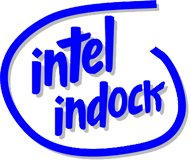Overview

Perennial computer-processor-underdog AMD today (June 28, 2005) filed an anti-trust complaint in the US Federal District Court claiming to show how Intel unlawfully maintains its monopoly in the x86 CPU market by coercing trade customers around the world not to deal with AMD
AMD says that its 48-page submission to the court identifies 38 companies that have been "victims of coercion by Intel - including large scale computer-makers, small system-builders, wholesale distributors, and retailers - through seven types of illegality across three continents".
The result of Intel's "illegal" activities, according to AMD, has been to "inflate the prices of computers and limit the choices available to business and consumers".
Commenting on the complaint, AMD's CEO, president and chairman Hector Ruiz, said, "Customers deserve freedom of choice and the benefits of innovation - and these are being stolen away in the microprocessor market. Whether through higher prices from monopoly profits, fewer choices in the marketplace or barriers to innovation - people from Osaka to Frankfurt to Chicago pay the price in cash every day for Intel's monopoly abuses."
AMD says that the litigation follows a recent ruling from the Fair Trade Commission of Japan (JFTC), which found that "Intel abused its monopoly power to exclude fair and open competition, violating Section 3 of Japan's Antimonopoly Act."
These findings, according to AMD, were not contested by Intel and "reveal that Intel deliberately engaged in illegal business practices to stop AMD's increasing market share by imposing limitations on Japanese PC manufacturers".
The company also says that the European Commission is investigating Intel for similar possible antitrust violations and doing so in cooperation with the Japanese authorities.
AMD's executive vice president, legal affairs (and also its chief administrative officer) Thomas M. McCoy added, "You don't have to take our word for it when it comes to Intel's abuses; the Japanese government condemned Intel for its exclusionary and illegal misconduct. Intel maintains illegal monopoly profits at the expense of consumers and computer manufacturers, whose margins are razor thin. Now is the time for consumers and the industry worldwide to break free from the abusive Intel monopoly."









